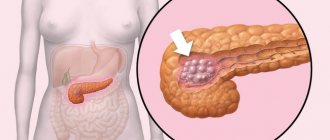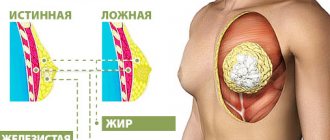Published: 03/09/2021 11:40:00 Updated: 05/06/2021
Hypothyroidism is a common disease of the endocrine system, in which the concentration of thyroid hormones (thyroxine and triiodothyronine) decreases. The disease manifests itself in approximately 0.2-3% of people, and in another 10-12% of the world's population the condition is unnoticeable. In mature and old age it occurs 10 times more often than in young people.
A small butterfly-shaped gland located in the lower part of the neck secretes hormones that are essential for all metabolism. The thyroid gland affects the functioning of every organ in the human body. Its hormones are involved in energy metabolism and are important for immunity and the production of other hormones. We can say that the thyroid gland is a hormonal metabolism. Without the required level of its hormones, natural processes in the body begin to slow down. Low levels of thyroid hormones are called hypothyroidism.
Hyperthyroidism is the opposite of hypothyroidism. With this pathology, the thyroid gland, on the contrary, secretes an excessive amount of hormones.
Forms and causes of hypothyroidism
There are two forms of the disease:
- Congenital hypothyroidism. Develops as a result of a pathologically enlarged thyroid gland, hereditary defects in the synthesis of thyroid hormones, and iodine deficiency in the diet of a pregnant woman. Congenital hypothyroidism is dangerous due to disturbances in skeletal development and mental retardation. If the problem is detected in time, some consequences can be avoided by maintaining normal hormone levels artificially.
- Acquired. A more common form of the disease.
Among its reasons:
- Pathologies of the pituitary gland, which produces thyroid-stimulating hormone, which, in turn, controls the production of thyroid hormones.
- Iodine deficiency in foods is an unbalanced diet, addiction to fast food and fast carbohydrates.
- Complete or partial removal of the thyroid gland.
- Reactive iodine therapy.
- Autoimmune thyroiditis is a chronic inflammatory disease of the thyroid gland.
Prohibited Products
Among the prohibited products, we can especially highlight those that contain soy, since the isoflavones it contains suppress the activity of the thyroid gland.
Cruciferous vegetables should be excluded from the diet, since the isothiocyanates they contain disrupt the functioning of the thyroid gland.
Unfiltered tap water is rich in chlorides, which negatively affect iodine receptors in the thyroid gland; you should also avoid drinking it.
In addition, extractive substances, foods rich in animal fats (liver) and cholesterol, which disrupt the absorption of nutrients, vitamins and minerals and contribute to the development of atherosclerosis, are excluded.
Easily digestible carbohydrates are also prohibited: they are easily broken down in the intestines, disrupt digestive functions and increase the level of “bad” cholesterol. Products that promote gas formation are contraindicated for hypothyroidism: it causes rotting of food masses and interferes with the absorption of nutrients.
The list of prohibited products includes:
- bread made from premium flour, all rich pastries, cakes, pastries, fried products (pies, pancakes, pancakes);
- fatty meats (pork, lamb) and poultry (goose, duck);
- liver (brains, liver, kidneys);
- fish caviar;
- smoked and salted fish, canned fish;
- fatty varieties of sausages;
- margarine, lard, cooking oil;
- all legumes;
- cruciferous vegetables (all types of cabbage, turnips, radishes, radishes, turnips);
- mushrooms in any form;
- rich broths from meat, poultry and fish;
- jam, honey are limited;
- mustard, pepper, horseradish;
- strong tea or coffee, cocoa, Coca-Cola;
- smoked meats, pickles;
- limited pasta and rice.
Symptoms of hypothyroidism
The severity of symptoms depends on the stage of the disease and the degree of thyroid dysfunction. In the early stages, the disease may proceed completely unnoticed. Often the first symptoms are weakness, fatigue and weight gain. As the pathology progresses, it manifests itself with the following symptoms:
- muscle weakness, chronic fatigue;
- weight gain, obesity;
- swelling, especially on the face;
- depressed mood, in advanced cases – depression;
- constipation;
- feeling of cold, chilliness;
- decreased sweating;
- slow heart rate;
- dry skin, thinning hair;
- memory impairment;
- fertility problems, irregular cycles;
- pain and stiffness in the joints.
Most symptoms of hypothyroidism are nonspecific, meaning they occur with many other diseases.
This is the main difficulty in early diagnosis of thyroid problems. The only way to detect the disease at an early stage is preventive laboratory diagnostics. Over time, patients with hypothyroidism without proper treatment develop characteristic external signs: slowness in movements, excess weight, swelling, the face becomes rounded, puffy, the skin becomes dry, cold and pale, hair becomes brittle, patients are cold even in summer, atherosclerosis progresses and vascular damage. In order not to start the disease, you need to check the function of the thyroid gland for preventive purposes and at the first suspicious symptoms.
Which doctor should I contact?
Issues of weight regulation in case of hormonal imbalance in the body are dealt with by an endocrinologist. It determines the cause of extra pounds using diagnostic techniques and the level of hormones in the body. If necessary, the patient also receives advice on a balanced diet from a nutritionist. This specialist develops a diet based on the individual characteristics of the patient’s body.
You should prepare yourself for the fact that this process will be long, ascetic and will lead to results only with the strict use of hormonal drugs, fat-burning drugs, additional stress in the form of sports and dietary nutrition.
An endocrinologist will help you prescribe the right treatment and lose weight painlessly for your body.
The main reason for visiting an endocrinologist is to identify the cause of obesity (hormonal imbalance in the thyroid gland) through diagnostic measures and the correct prescription of medications based on the results of the study.
Who is at risk?
Hypothyroidism can develop in both women and men of any age. Even children are affected by the disease. However, an increased risk of developing the disease is observed in the following groups:
- Women of middle and older age.
- Age over 60 years.
- There is a family history of thyroid disease.
- An autoimmune disease (eg, type 1 diabetes) is present.
- Has been treated with radioactive iodine or antithyroid drugs.
- We received a large dose of radiation.
- There was surgery on the thyroid gland (partial thyroidectomy).
- Residents of areas with increased background radiation.
- People living in regions of iodine deficiency.
Excess weight and hypothyroidism
Novosibirsk scientists have found that this plant contains little iodine, but contains a lot of flavonoids and tannins. It also includes many minerals: silicon, zinc, selenium, manganese, iron. If there is little iodine in white cinquefoil, then why is it able to affect the thyroid gland? According to the professor of the Department of Pharmacology of Penza State University E.F. Semenova, who is studying the beneficial properties of cinquefoil, needs to talk about the complex action of all the substances of the plant.
There is also an opinion that the therapeutic effect is achieved thanks to tannins that can remove toxins and radionuclides from the body.
Knowing these features of cinquefoil, the creators of the drug "Thireo-Vit" enriched it with kelp - an additional source of iodine. All three components of this dietary supplement act synergistically, effectively complementing each other.
Hypothyroidism in infants
Although hypothyroidism most often affects middle-aged and older women, anyone can develop the disease, including newborns. In children, hypothyroidism is usually congenital. There are pathologies in which a child is born with a dysfunctional thyroid gland; in rare and complex cases, the gland can be greatly reduced in size, and the production of hormones can be minimized.
Symptoms of hypothyroidism in newborns include:
- jaundice (yellowing of the skin and whites of the eyes);
- slow intestinal motility, frequent constipation and abdominal pain;
- lack of appetite;
- decreased activity of the child;
- labored breathing;
- hoarse crying;
- large fontanelles;
- decreased heart rate;
- umbilical hernia;
- cardiac pathologies (in 40-80% of cases).
Hypothyroidism causes serious physical and mental retardation in infants if not treated promptly.
Diagnosis of hypothyroidism in newborns is based on clinical symptoms and laboratory blood tests, which are performed on the third day of life. The first test to diagnose hypothyroidism is TSH thyrotropin, a pituitary hormone that stimulates the production of thyroid hormones. The standard indicator for newborns is 0.73-4.75 mU/l. Until the fourth day of life, TSH levels are normally significantly elevated.
Diagnosis of hypothyroidism
As we have already described, the symptoms of the pathology are nonspecific and often occur among the general population. Therefore, the diagnosis is suspected in many people, but fortunately, it is not confirmed so often. Consequently, thyroid function tests are one of the most requested laboratory tests. The diagnosis of hypothyroidism is confirmed, the level of thyrotropin (TSH) in the serum is higher than normal, and the hormones T3 and T4, on the contrary, are insufficient. The first and main way to detect thyroid dysfunction is through laboratory tests. Hypothyroidism can be detected through the following tests:
- TSH. An abnormally high TSH level may indicate decreased thyroid function and, as a result, hypothyroidism. The first test that must be taken if a pathology is suspected is a study of the level of thyroid-stimulating hormone (TSH) in the blood.
- Total T4 and free T4 (thyroxine).
- Total T3 and free T3 (triiodothyronine). T3 and T4 are thyroid hormones. Their reduced values are a signal of hypothyroidism.
The doctor may also prescribe:
- General blood analysis. Impaired iron absorption is a nonspecific sign of hypothyroidism.
- Blood chemistry. The study will tell about water-salt metabolism in the body, which suffers from diseases of the endocrine system. If T3 and T4 levels are low, sodium levels may be low and creatinine levels may be high.
In addition to laboratory tests, ultrasound is required to fully diagnose the condition of the thyroid gland.
An ultrasound examination will evaluate the size of the gland and its structure. It is important to understand that only an experienced doctor will be able to correctly interpret the research results and make the correct diagnosis. At CITILAB you can take all the necessary tests and get advice from a specialist on interpreting their results.
Author:
Baktyshev Alexey Ilyich, General Practitioner (family doctor), Ultrasound Doctor, Chief Physician
Basic rules of diet for hypothyroidism
The goals of therapeutic nutrition for this disease are:
- normalization of metabolic processes;
- preventing the development of atherosclerosis;
- restoration of blood supply to tissues;
- weight loss.
According to Pevzner’s classification, this diet corresponds to treatment table No. 10c.
Therapeutic nutrition for hypothyroidism involves some limitation of fats (mainly animal fats) and carbohydrates (at the expense of simple ones).
Daily nutrient content in the treatment table:
- proteins – 80g, of which 50-55% vegetable proteins;
- fats – 70-80g, of which 35% vegetable fats;
- carbohydrates – 350-400g, with sugar – no more than 50g.
The energy value of the daily diet is 2200-2400 kilocalories.
Basic Rules:
- diet; Food is consumed fractionally: up to 5-6 times a day in small portions. Compliance with the principle of fractionation allows the gastrointestinal tract to better break down nutrients and absorb minerals and vitamins.
- culinary processing; For hypothyroidism, boiling, steaming, and baking are allowed. Products should be crushed, which contributes to mechanical sparing of the digestive tract. Frying is excluded, since during this process fat breakdown products are formed, which adversely affect blood vessels and all metabolic processes.
- food temperature; Food should be served warm (15-60 degrees Celsius). Too cold or hot foods irritate the gastrointestinal tract, and the body weakened by hypothyroidism spends a lot of energy on digesting them.
- drinking regime and salt; The amount of free fluid is limited to 1-1.5 liters per day: with hypothyroidism, edema occurs, which, even without excess fluid, disrupts metabolic processes in tissues. Salt is limited to 5-6 grams per day, which provides chemical sparing of the stomach and does not contribute to fluid retention in the body. Patients with hypothyroidism are advised to eat iodized salt, since iodine is necessary for the production of thyroid hormones.
- alcohol; Alcohol consumption is prohibited in all therapeutic diets, and especially in cases of hypothyroidism. Ethyl alcohol slows down metabolic processes and irritates the digestive tract.
- vitamins; Nutrition for hypothyroidism should be enriched with vitamins. It is important to saturate the body with ascorbic acid: it strengthens the vascular wall, thus preventing the occurrence of edema and the development of atherosclerosis. The body experiences a slowdown in metabolic processes caused by a lack of thyroid hormones, so the metabolism needs stimulation, which vitamins can provide. In addition, some vitamins are involved in the functioning of the thyroid gland. Therefore, the diet should contain a lot of plant fiber: it not only contains a large amount of useful substances, but also normalizes intestinal motility.










